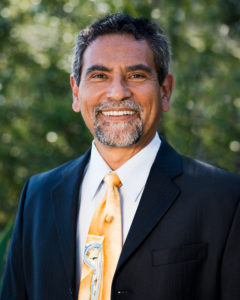
When I was a teenager, my priest abuser would have me sit in the car and wait for him while he went to his confessor before we would go on an out-of-town trip together. Had California’s SB 360 been in place then, how different my life—and those who came before and after me—would have been.
When I was growing up in Cypress Park, California, in the late 1950s, like so many of our neighbors, I trusted that my Catholic community and education would help me to rise out of poverty, hunger, and shame. I was an altar boy and my mother was a pillar in our parish, organizing whatever needed to be done and volunteering countless hours at the church.
We held priests in the highest esteem, even when some of their behavior seemed questionable, such as their drinking, sexualized joking, and entertainment habits. And so my mother was thrilled when the parish priest, Monsignor Leland Boyer, told her he thought that I, at the age of 13, had a vocation to join the priesthood and could work in the church rectory while he served as my mentor.
Mons. Boyer would regularly invite me to stay overnight at the rectory, take me on overnight trips to luxurious vacation homes, and bring me gifts from his various trips. But all of this attention came at a price, as he began to repeatedly sexually abuse me. Soon, a diocesan worker joined him in victimizing me. The abuse continued for 3 years. At the time, I had no idea that I was the victim of multiple crimes related to the sexual abuse of a minor. Too ashamed to speak to anyone about it, I kept silent and psychologically disassociated from the abuse as a survival tool.
Today, I serve as a United Church of Christ Minister for Healing and Healthy Environments in San Diego. I am a hospice chaplain and the President of the Child-Friendly Faith Project, a nonprofit organization that raises awareness of religious child maltreatment. These are some of the ways that I integrate my own hurting, healing, and helping in an attempt to end child sexual abuse in religious environments.
I am writing today to ask for your help in putting safeguards in place so that children are not victimized. SB 360 is one such safeguard. If, when I was a young boy, clergy had been mandated to report child sexual abuse without exception, it’s possible that someone would have stepped in and prevented my abuse from continuing and Mons. Boyer would have been held accountable. Furthermore, we would have likely been assured he didn’t abuse more children, as has been made tragically clear through others’ formal charges brought against him.
SB 360 would make it mandatory that when an admission of sexual abuse is expressed to a religious authority as penitential communication (just as when a patient divulges similar information to a therapist), the confessor must report the abuse to police. If SB 360 becomes law in California, victims can be heard, perpetrators would be made accountable, and a community can heal. By continuing to allow religious organizations to avoid reporting these suspected cases, we are doing the opposite: victims are kept silent and perpetrators are free to continue to harm those same victims and countless others.
We are pleased that SB 360 has made its way from the California Senate to the House Public Safety Committee. However, we need the bill to move forward with the original language intact so that it stipulates that clergy are to report child sexual abuse perpetrated by any penitent, not only other priests. Calls and letters from constituents are more effective than general calls and letters, and those are also important.
At my nonprofit organization, the Child-Friendly Faith Project, we believe that all children deserve to be protected from abuse and neglect and all perpetrators of maltreatment should be held accountable. States like California recognize that need by requiring that certain adults be mandated reporters of such abuse without a stipulation of how the information is obtained. But by allowing for the so-called “confession loophole” for clergy, the California State Legislature would be taking the position that only some children deserve our protection, while others—namely those whose abusers are named in confession—do not.
Please contact the California Assembly Public Safety Committee members and demand that they do their part to ensure that all child victims of abuse are taken out of harm’s way and all perpetrators are held accountable. The solution is to remove the penitential-communication exemption and have the bill apply to all suspected cases of abuse that are discovered in confession.
CA Public Safety Committee members:
Reginald Byron Jones-Sawyer, Sr. (Chair, D), Los Angeles
916-319-2059
213-744-2111
Tom Lackey (R), Palmdale
916-319-2036
661-267-7636
Rebecca Bauer-Kahan (D), San Ramon
916-319-2016
925-328-1515
Tyler Diep (R), Huntington Beach
916-319-2072
714-843-4966
Sydney Kamlager-Dove (D), Culver City
916-319-2054
310-641-5410
Bill Quirk (D), Hayward
916-319-2020
510-583-8818
Miguel Santiago (D), Los Angeles
916-319-2053
213-620-4646
Buffy Wicks (D), Oakland
916-319-2015
510-286-1400
Thank you for your advocacy and compassion,
Rev. Dr. Jaime Romo
The Child-Friendly Faith Project
